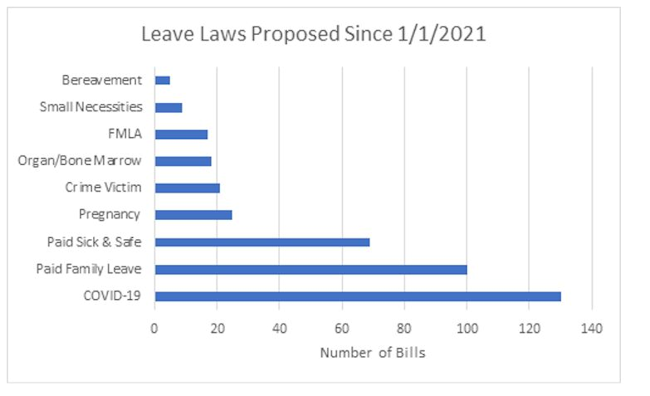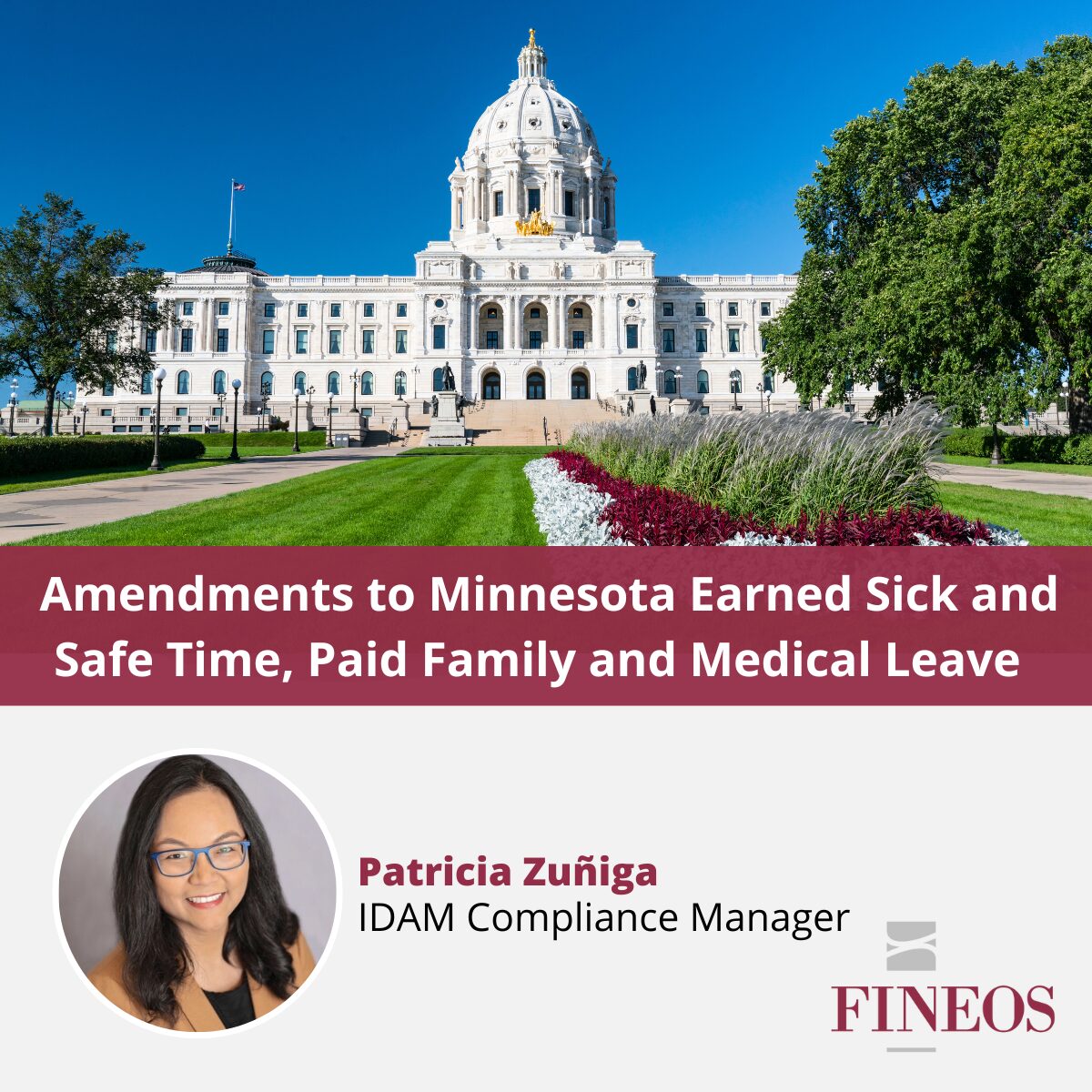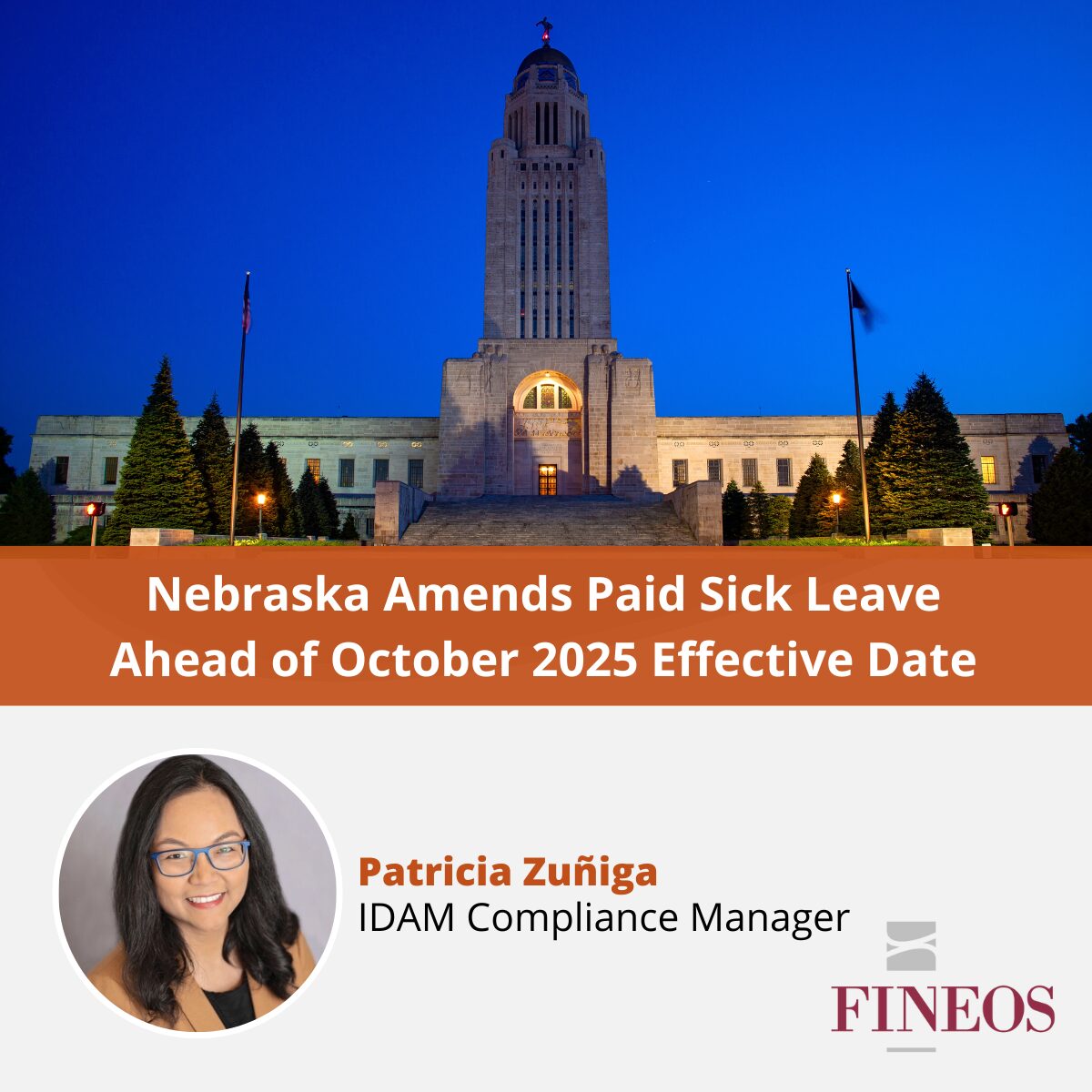Absence management has become increasingly complex throughout the COVID-19 pandemic. In this blog, you’ll learn how changes in legislation are impacting absence management in your state and what you need to know now to remain in compliance.
State legislatures have maintained a steady pace this winter into spring, proposing a substantial number of new leave laws across the country.
Since the start of 2021, we have seen a wide array of bills proposed on a variety of topics:

Of course, only a small percentage of proposed bills will receive a Governor’s signature of approval. Today, we bring you the recently approved bills along with some promising looking legislation that may be signed into law soon.
California Passes Supplemental COVID-19 Legislation
On March 19, the Governor of California signed Senate Bill 95. According to the new legislation, employers with at least 25 employees must provide COVID-19 supplemental paid sick leave to full time employees if they are unable to work or telework due to reasons related to COVID-19.
The bill provides 80 hours of COVID-19 supplemental paid sick leave for full-time workers, and provides alternate calculation for part-time employees, those with a variable work schedule, and firefighters with certain schedules. The COVID-19 supplemental paid sick is in addition to any paid sick leave available under the existing paid sick leave law.
Employees must be provided leave to:
- follow a mandatory quarantine or isolation order related to COVID-19
- self-quarantine due to concerns related to COVID-19 upon the advice of a health care provider
- attend an appointment to receive a COVID-19 vaccine, or recover from symptoms due to the vaccine
- recover when experiencing symptoms of COVID-19 and to seek a medical diagnosis
- care for a family member who is subject to a quarantine order or guideline or who has been advised to self-quarantine by a health care provider
- care for a child whose school or place of care is closed or otherwise unavailable for reasons related to COVID-19
The requirement to provide COVID-19 supplemental paid sick leave takes effect 10 days after the date of enactment, or March 29, 2021.
Additionally, requirements of the new law apply retroactively to January 1, 2021. The CA Department of Industrial Relations has provided an informational poster with a summary of the law.
New York Enacts COVID-19 Vaccine Leave
On March 12, Governor Andrew Cuomo signed into law Senate Bill 2588A requiring all public and private employers in New York State to provide employees with up to four hours of leave to receive the COVID-19 vaccine.
The law establishes a per-injection entitlement, so employees receiving a two-dose vaccine will be entitled to eight hours of paid time off. Leave under the new law cannot be deducted from any other leave to which the employee is entitled. This law prohibits discrimination and/or retaliation against employees, including for requesting or using a leave of absence for COVID-19 vaccination.
The new legislation took effect upon the Governor’s signature and will expire on December 31, 2022.
Philadelphia Enacts COVID-19 Paid Sick Leave
Philadelphia had previously enacted a paid leave ordinance designed to cover the needs of employees impacted by COVID-19, but it expired on December 31, 2020.
A new ordinance, signed on March 29, requires employers in Philadelphia with 50 or more employees to provide 80 hours of paid time off to employees who have been employed for at least 90 days, or if part-time, the equivalent of a 2-week leave of absence.
Employees can take leave for their own or their family member’s health needs related to COVID-19, in addition to caring for a child as needed due to a school or childcare closure, or for symptoms related to the COVID-19 vaccine.
The leave mandate expires on the conclusion of the Proclamation of Disaster Emergency of the Governor of Pennsylvania related to the COVID-19 pandemic.
Kentucky Expands Adoption Leave
On March 23, 2021, the Governor of Kentucky signed House Bill 210, amending the state’s leave protections for adoptive parents. The existing law requires employers to provide six weeks of leave to parents who adopt a child under the age of 7.
This amendment requires employers to provide the greater of either six weeks or the amount provided to birth parents and expands coverage for leave to adoptions for a child under the age of 10. The law also clarifies that an employer must provide equal benefits to adoptive parents as it does for birth parents, in terms of type, amount, and duration of paid leave.
Hawaii Eyes Paid Family Leave
Adopted on March 31, Hawaii House Resolution 86 directs the Hawaii Director of Labor and Industrial Relations to convene a task force to study, design, and develop a Paid Family Leave Pilot Program.
The task force is directed to submit a report describing the progress, findings, and recommendations, including any proposed legislation, to the Legislature no later than twenty days prior to the convening of the Regular Session of 2023.
Virginia Presses Forward with Plans for Paid Family and Medical Leave
In September 2020, the Virginia Offices of the Secretary of Commerce and Trade and the Chief Workforce Development Advisor published the Paid Family and Medical Leave Study, analyzing the needs and impacts of establishing a paid family and medical leave (PFML) program in Virginia.
Signed by the Governor on March 31, Virginia Senate Bill 1219 directs the Virginia State Corporation Commission’s Bureau of Insurance (Bureau) to make recommendations regarding any necessary statutory changes that would allow the sale of private insurance plans to meet the policy goals of the study and coexist as part of a statutory PFML program.
The bill directs the Bureau to convene a stakeholder group to participate in the process, including representatives from the insurance industry, the business community, labor organizations, advocates for paid family leave and medical leave, and other interested parties.
This legislation directs the Bureau to report its findings and recommendations to the Senate Committees on Commerce and Labor and Finance and Appropriations and the House Committees on Labor and Commerce and Appropriations by November 30, 2021.
The following bills look ripe for passage, as we await action from the respective legislature or Governor.
- Maryland House Bill 56: Eligible for Governor’s desk as of March 29, this bill would expand Maryland’s Flexible Leave Act to allow employees of employers with at least 15 employees to use earned paid leave for bereavement leave for the death of the employee’s immediate family member.
- New Mexico House Bill 20: Eligible for the Governor’s desk as of March 20, this bill would provide comprehensive sick and safe leave for New Mexico workers, covering leave for an employee or family member’s health needs, school activities for an employee’s child, and absences necessary due to domestic abuse, sexual assault or stalking suffered by the employee or a family member. The law also provides for supplemental paid sick leave for absences related to a public health emergency.
- Maryland Senate Bill 473: Eligible for the Governor’s desk as of April 2, this bill would require employers with 15 or more employees that provide sick leave, vacation time, PTO, and compensatory time the option to take such time for bereavement leave to grieve the loss of the employee’s child, parent, or spouse.
- Washington Senate Bill 5097: The Washington legislature is considering this bill which would expand the definition of family member under the existing WA PFML law, to include “any individual who regularly resides in the employee’s home or where the relationship creates an expectation that the employee care for the person, and that individual depends on the employee for care.” The law also imposes a requirement for the Employment Security Department (ESD) to collaborate with The Paid Family and Medical Leave Advisory Committee to collect and analyze disaggregated data relating to employment protections and provide a report to the appropriate committees of the legislature with certain information about program utilization. Additionally, by June 30, 2022, and June 30, 2023, the ESD must provide information about the number of individuals who used leave due to the amended definition of Family Member and the effects, if any, on the Family and Medical Leave Insurance account due to the amended definition.
- Indiana House Bill 1309: The Indiana legislature is considering that would allow an employee to request accommodations relating to pregnancy and would require an employer to respond to the request within a reasonable time. The law would prohibit an employer from disciplining, terminating, or retaliating against an employee due to a request for or use of an accommodation.
Stay tuned for more updates as the spring legislative sessions continue their progress. Absence management is never dull, with constant evolution of the compliance landscape. FINEOS watches the trends and stays up to date, so our clients can take care of their business. You can find out more on our FINEOS Absence page here.


